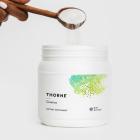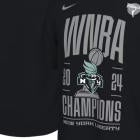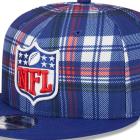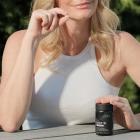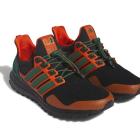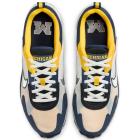
After protein powder, creatine is one of the most popular supplements among gym-goers of all skill levels. But what is it? Why do people take it? And, most importantly, should you take creatine? To answer those questions, we reached out to the experts to get the scoop on whether it's worth adding a scoop of this supplement to your protein shake or pre-workout. If you decide you want to try it out for yourself, we've also included our top picks of the best creatine supplements you can get in 2024.
Always consult your own doctor for advice before starting an exercise regimen or taking sports supplements.
What is creatine?
Dr. Jennie Stanford, an obesity medicine physician and medical contributor for Drugwatch, puts it like this: "Creatine is a nitrous oxide compound made in the liver, kidneys and pancreas and stored in muscles." In muscles and other parts of the body that need constant access to immediately available sources of energy, creatine is essential.
That's because it can be transformed into phosphocreatine. "Phosphocreatine is an immediate source of energy, especially during high-intensity short-term activities such as sprinting or weightlifting through the regeneration of adenosine triphosphate (ATP) which is the major cellular energy carrier," added Dr. John Lowe, MD, a physician at Restore Care.
While your body does make some creatine on its own, it can only produce about half of what your body needs. You need to get the rest from creatine-rich foods like fish, meat and other animal products. But if you're a vegetarian or you're training intensely, a creatine supplement can help ensure a generous supply of this essential energy source.
Who should not take creatine?
"Creatine is generally safe for healthy individuals who use it in the recommended amounts," Lowe told CBS Sports Essentials. Its most common side effects are gastrointestinal upset (like bloating and constipation), and that typically happens at those higher "loading phase" doses. One way to minimize any discomfort is to split up the 20 grams into four smaller doses of five grams each.
While it's generally safe, Dr. Lowe did note, "Caution must be exercised when using any other medication including non-steroidal anti-inflammatory drugs (NSAIDs) or certain diuretics because they affect kidney function by taking such medications alongside creatinine."
Best creatine supplement overall: Thorne creatine

Thorne is one of the most popular and most trusted brands in the supplement space. Its creatine powder is no exception. This one-pound tub contains 100% pure creatine monohydrate powder and no other ingredients whatsoever. It's NSF-certified for sport, meaning it not only meets strict standards of purity and quality but it's also confirmed to be free of banned substances. So if you're a pro athlete entering a competition, you can trust Thorne creatine has nothing in it that will get you disqualified.
The scoop included is sized to hold about five grams of protein, which makes it easy to use for just about any purpose. For bodybuilders, you can take four scoops per day to get your daily 20 grams during your loading phase. For maintenance or those interested in its potential brain health benefits, a single scoop per day is all you need.
You can stir into a glass of water until it dissolves, add it to your protein shake or even mix it into your morning tea or coffee. It's unflavored so it's easy to just about any liquid of your choice without impacting the taste.
This one-pound container holds about 90 five-gram servings. You can get it for $42 on Amazon.
$42 at AmazonWhat are the health benefits of creatine?
The most well-known and well-studied benefits of creatine have to do with muscle and overall physical fitness. "It has been proven to be effective in increasing muscle mass, strength and exercise performance, especially during high-intensity short-duration activities," said. Dr. Lowe.
Research shows that creatine supplements may help improve muscle performance during training and reduce muscle damage afterward. Those two benefits can result in faster muscle growth as you're able to train harder and recover faster. It's important to note that significant muscle growth was only seen when combined with a good training regimen. Creatine alone can't create new muscle. Instead, it's the fuel your body needs to build muscle more efficiently.
While it's mostly used by bodybuilders, creatine's effects on muscle performance are also shown to benefit soccer players, people who do plyometric training and other types of aerobic exercise. So, it can be a great supplement for runners and other endurance athletes as well as weightlifters.
Some early research shows that creatine supplements might be good for the brain, too. So far, the results are mixed in healthy adults. But a few studies have found that aging adults, people with traumatic brain injuries or those dealing with unusually high levels of stress (like mental or physical illness) saw improved memory and other cognitive functions when taking creatine.
A lot more research is needed on any brain health benefits. But, given the positive early data and the fact that creatine is generally safe and well-tolerated, it doesn't hurt to continue taking a low daily dose after your initial loading phase. (More on that below).
Best creatine supplement in capsule form: Optimum Nutrition micronized creatine capsules

If blending powder into a drink doesn't appeal to you, Optimum Nutrition offers creatine in capsule form. Like Thorne, this supplement is 100% pure creatine monohydrate with no other added ingredients (except the capsule). It's tested for banned substances, so athletes can take this ahead of competition.
Each capsule packs 2.5 grams of creatine so you can take two to get the typical five-gram maintenance dose or take one to experiment with a lower daily dose. It's worth noting that the capsule is made of gelatin, so it's not vegan-friendly.
Get a 100-capsule bottle on Amazon for $25. (Price may vary if you select delivery from your local Amazon Fresh store.)
$25 at AmazonCreatine monohydrate vs creatine HCL: What's the difference? Does it matter?
If you've been shopping for creatine supplements, you might have come across a few types, each promising different advantages. Creatine HCL (hydrochloride), for example, is a newer form that promises to be more easily absorbed so that you can get the same benefits at a lower dose. However, Lowe cautioned, "Currently available evidence does not show a significant difference in muscle uptake or performance outcomes between this form and creatine monohydrate."
Until there's more evidence to back up the claims of these other forms, most experts agree that your best bet is to just stick with creatine monohydrate -- the form most commonly used in supplements.
That's because this is the form that most existing research is based on. According to Stanford, "More studies are available on using creatine monohydrate for supplementation, including studies of long-term safety, effectiveness, and cost."
Best creatine HCl supplements
- An NSF-certified version of the newer creatine HCl: Con-Cret Creatine HCl capsules, 90 servings, $30
- Con-cret's same NSF-certified formula in powder form: Con-Cret Creatine HCl powder, 64 servings, $25
- Top-rated creatine HCl in a variety of flavors: Kaged Creatine HCl, 75 servings, $25
How much creatine should you take?
How much creatine you should take depends on your goal and your doctor's advice. For strength training, "creatine is often taken in a loading dose of 20 grams for several days, followed by a 5 gram daily maintenance dose," Stanford says.
If your main goal is to get any potential benefits to brain health, Lowe suggests sticking with that lower maintenance dose. "Lower dosages of between two and five grams per day are usually recommended for cognitive health," he said.
Best creatine and protein powder combo: Cellucor Whey Sport

If you're taking creatine as part of your workout regimen, you're probably taking protein powder, too. So why not simplify your routine by picking up a potent protein powder that already has creatine added?
Each serving of this Cellucor Whey Sport protein powder contains 30 grams of protein and 2.5 grams of creatine.
If you're not trying to gain weight, finding a creatine and protein combo that isn't a high-calorie weight gain powder can be tough. But this is the low-calorie option you've been waiting for. At just 160 calories per serving, it's the most efficient way to load up on protein and creatine without seriously messing up your calorie count.
It's also NSF-certified for sport, gluten-free, soy-free and low-carb.
Get an 18-serving container for $29 on Amazon.
$29 at AmazonBest budget creatine monohydrate supplement: Nutricost Performance

Whether you're blazing through creatine because you're in the middle of a loading phase or you're just looking for a budget-friendly way to try this supplement, Nutricost is one of your best options. An Amazon bestseller, this creatine powder contains about five grams of pure creatine monohydrate powder per scoop.
There are no other ingredients added, so you're just getting pure, unflavored creatine that you can easily add to your beverage of choice. It's third-party tested to confirm purity and potency.
This one-kilo tub (about two pounds) contains 200 five-gram servings -- and you can get it for just $40. That works out to just 20 cents per serving.
$40 at AmazonBest chewable creatine supplement: Animal Creatine Performance Chew Tabs

Whether you're tired of powders or you hate swallowing big capsules, Animal's delicious grape-flavored creatine tablet is a great option. You can chew it or dissolve it into your drink to get five grams of creatine monohydrate per serving.
If grape isn't your jam, the chewable creatine supplement is available in other fun flavors like sour apple, fruit punch and lemon ice.
This is also a convenient option for taking your creatine on the go. If you know you won't always have access to your shaker bottle or a beverage to stir your powder into, you can just toss this bottle in your gym bag and have a ready-to-chew creatine supplement whenever you need it.
Get a 30-serving bottle on Amazon for $30.
$30 at AmazonMore top-rated creatine supplements
- Optimum Nutrition's popular creatine in powder form: Optimum Nutrition Micronized creatine monohydrate powder, 60 servings, $20 after coupon (reduced from $23)
- Top-rated and rigorously tested: Sports Research creatine monohydrate powder, 100 servings, $28
- A budget-friendly creatine powder: Bulk Supplements creatine monohydrate, 100 servings, $23
- Creatine powder in grab-and-go packets: Cregaatine pouches, 30 servings, $29
- Get your creatine dose in delicious gummy form: Create creatine monohydrate gummies, 30 servings, $26 (reduced from $50)






